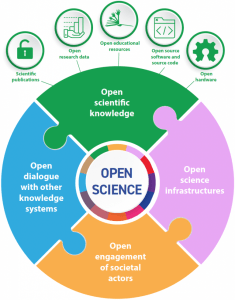This past April, NTU library together with our colleagues from the Good Research Practice Office (GRPO) conducted a workshop on “Research Reproducibility in Science.” The 2-hours long Team-Based Learning (TBL) workshop was held in Lee Kong Chian School of Medicine HQ. It was facilitated by Celine Lee (GRPO) and Dr Amy Chou from Open Science and Research Services (OSR) at NTU Library. Participants were mainly LKCMedicine’s Principle Investigators, Research Staff, and PhD students.
The objectives of the workshop were to help participants have a better understanding of:
- research reproducibility,
- impact on scientific advancement when scientific literature cannot be replicated,
- concerns and issues surrounding such impact.
The first session consisted of ten multiple-choice questions (MCQs). They covered wide-ranging topics from p-hacking, outlier, undesirable research practices, fabrication of research data, fake peer review to institutional roles in fostering data reproducibility. Participants were encouraged to attempt the questions before the workshop. This individual exercise was followed up by group and class discussions to maximise team-based learning.
The second half of the session was levelled up with the presentation of a case study that was divided into three parts. The first was on specific research and ethical issues that could be raised from data reproducibility. The second looked at the importance of preserving the original research data . The final part focused on what would be helpful to support other researchers in replicating research findings. Here again, team-based learning was employed with group discussions followed by a class discussion to maximise engagement and learning outcomes among participants. Some major highlights gleaned from the second segment included the need for a set of principles to support a more robust and transparent research as well as the sharing of some best practices in research reporting.
The general feedback for the workshop was good. A majority found it useful and helpful as the MCQs and case study (an adaptation from the National Institutes Health teaching material) were work related, and tailored to the biomedical discipline. This could also be seen in the lively discussion among the participants in both group and class discussions. They also found the duration of the workshop to be appropriate for the number of topics covered.

UNESCO Recommendation on Open Science. CC BY IGO 3.0






